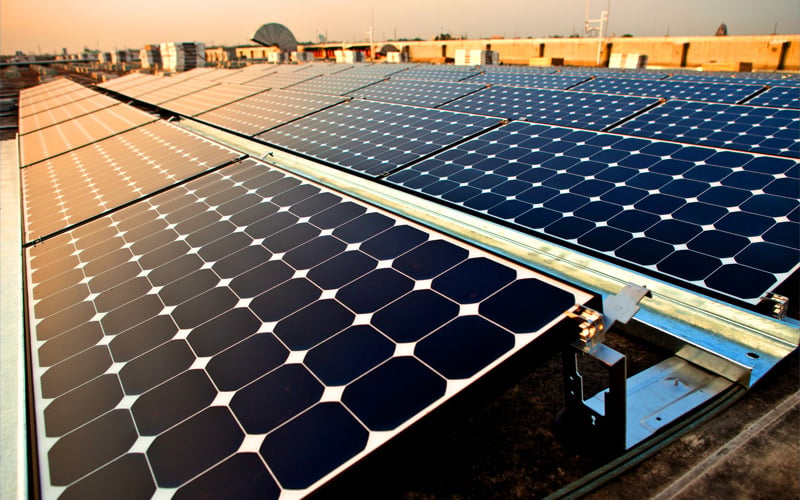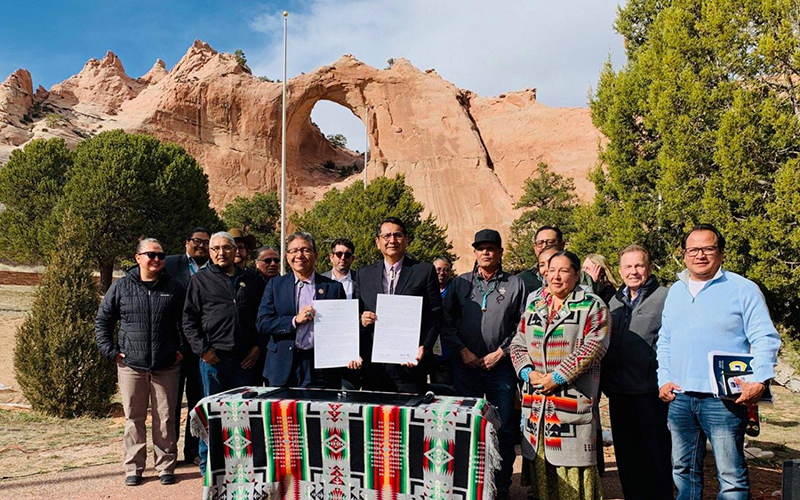
Arizona’s current renewable-energy standard is 15% by 2025. The Arizona Corporation Commission is discussing whether to change the standard. (Photo by Intel Free Press via Creative Commons)
PHOENIX — The Arizona Corporation Commission is considering several significant proposals that would change energy regulation in the state, including how much of our power comes from renewables, such as solar and wind.
The state’s current renewable-energy standard, completed more than 10 years ago, is 15% by 2025. That’s lower than the goals of several neighboring states, but the standard is now up for discussion.
At a hearing Wednesday, Arizona’s largest utility, Arizona Public Service, stressed it wanted flexibility in choosing which energy sources to use.
“Typically (in) July and August, it’s all hands on deck from a resource perspective,” said Brad Albert, a vice president at APS. “We’re using just about everything that we have in order to meet the reliability needs in the late-afternoon, early-evening time period.”
The flexibility Albert wants would include natural gas, which is a fossil fuel but less polluting when combusted. A partial moratorium on new construction of natural gas generators in Arizona ended Thursday.
At the hearing, Albert introduced a consultant who made the case that wind and solar are not necessarily available at the precise moment the energy they produce is needed.
“Those are the instances where we see natural gas as playing (a) crucial role in the reliability of the system,” said Nick Schlag of Energy and Environmental Economics.
But in an interview, Amanda Ormond of Western Grid Group, which advocates for energy efficiency and increased renewable energy on the electricity grid, said battery technology is improving and solar and wind are becoming cheaper.
Ormond’s group was part of a coalition of environmental, faith and clean energy groups urging a renewable standard of 50% by 2030 and 100% clean energy by 2045.
The term “renewable” energy does not include nuclear; the term “clean” does.
“These long-term policies are important to ensure that utilities move at as rapid a pace as they can, and it also signals to the investment community, to developers and manufacturers that Arizona is open for business and they should come here,” Ormond said.
The group’s suggestion of 50% renewable energy requirement by 2030 is similar to Proposition 127, a ballot initiative voters rejected last year after stiff opposition from APS.
A proposal from Arizona Corporation Commission staff members has a lower bar: a renewable goal of 45% of annual retail energy sales coming from renewable energy by 2035, and a “clean-peak goal” – for sales at peak times – of 20% clean energy by 2035.
Kris Mayes, a former chairman of the corporation commission who co-wrote the current renewable-energy standard, thinks a stronger standard is long overdue.
“We need to get to 50% renewable energy and we need to get there fast,” Mayes said. “Renewable energy is the cheapest form of electricity we have available to us. It’s also clean, it’s carbon-free, it helps us combat climate change.”
APS also announced two new renewable-energy projects this week. The company is accepting proposals to build 150 megawatts of solar generation that APS would own, and it’s seeking proposals for someone to sell the utility 250 megawatts of wind power or build a wind generator.
APS says it now gets about 12% of its power from renewable sources and 50% from clean sources, including nuclear.
Mayes called the new projects “a minor step in the right direction, but nowhere near good enough.”
The review of the renewable energy standard comes as the corporation commission is considering whether to let more competition into Arizona’s utility market.
The hearing on the renewable-energy standard will be continued Aug. 7. A decision isn’t likely before the fall.
This story is part of Elemental: Covering Sustainability, a new multimedia collaboration between Cronkite News, Arizona PBS, KJZZ, KPCC, Rocky Mountain PBS and PBS SoCal.
AlertMe
